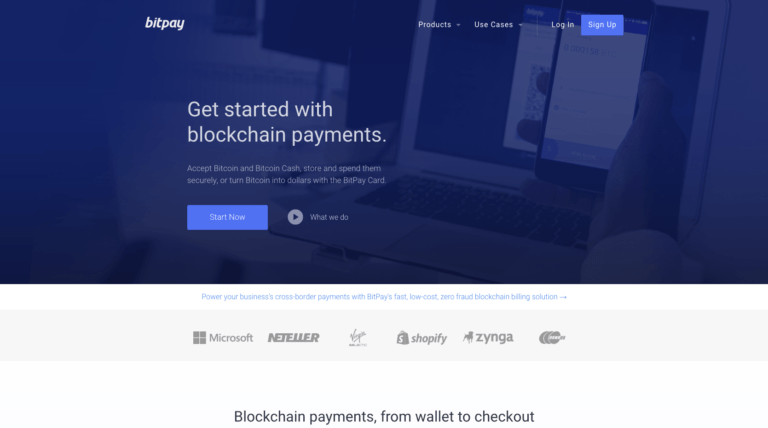On Monday (15 October 2018), blockchain payment processor BitPay announced via a press release that merchants could now choose to receive settlement in two regulated fully-collateralized stablecoins: Circle’s “USD//Coin” (USDC) and the Gemini digital asset exchange’s “Gemini Dollar” (GUSD). One stablecoin notable for its absence in the announcement was Tether (USDT), the world’s most popular and most unstable fiat-backed stablecoin.
BitPay says that this news means that merchants around the world who are sing BitPay to accept Bitcoin (BTC) and Bitcoin Cash (BCH) “now have the additional option to receive their settlement in a US dollar-equivalent cryptocurrency.”
BitPay gives three reasons for choosing its blockchain payment processing service:
- Unlike with credit cards that can cost up to 3% “in processing fees on every transaction”, with BitPay, businesses can receive funds in eight fiat currencies (direct bank deposits in 38 countries) and four cryptocurrencies (direct bank deposits in 240 countries) for a flat 1% settlement charge.
- With BitPay, businesses can “receive payment in any amount, from anywhere in the world, from any computer or mobile device.”
- With Pay, businesses can avoid worrying about “chargeback fraud and identity theft”; customers “can pay without handing over sensitive personal information, and refunds are made through the merchant — no chargebacks.”
The following diagram illustrates how the payment process works (in the case of a Bitcoin payment):

Stephen Pair, co-founder and CEO of BitPay had this to say about today’s introduction of settlement via stablecoins:
“BitPay was founded to make payments faster, more secure, and less expensive using Bitcoin for organizations around the world. The introduction of the USDC and GUSD stable coin offers BitPay customers a new alternative to holding Bitcoin and Bitcoin Cash by offering a stable coin option.”
BitPay says that the main benefit of settlement via fiat-backed stablecoins is that businesses now have “a non-volatile settlement solution that does not rely on traditional bank wires”, and that it enables businesses around the world to “receive international payments faster and more economically than traditional bank wires.”
Featured Image and Diagram Courtesy of BitPay









